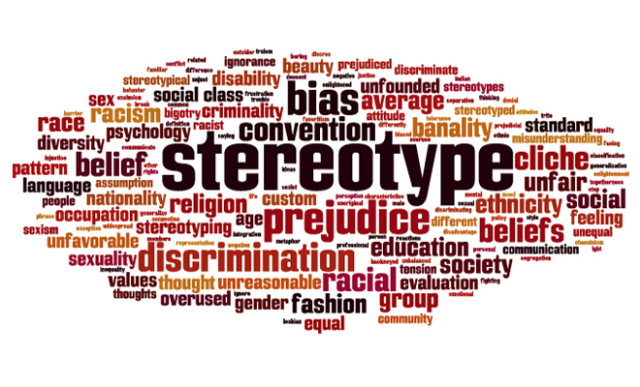In social psychology, a stereotype is an over-generalized belief about a particular category of people. It is an expectation that people might have about every person of a particular group. The type of expectation can vary; it can be, for example, an expectation about the group's personality, preferences, or ability.
Stereotypes are generalized because one assumes that the stereotype is true for each individual person in the category. While such generalizations may be useful when making quick decisions, they may be erroneous when applied to particular individuals. Stereotypes lead to social categorisation, which is one of the reasons for prejudice attitudes, and may arise for a number of reasons.
Stereotypes, prejudice, and discrimination are understood as related but different concepts. Stereotypes are regarded as the most cognitive component and often occurs without conscious awareness, whereas prejudice is the affective component of stereotyping and discrimination is one of the behavioral components of prejudicial reactions. In this tripartite view of intergroup attitudes, stereotypes reflect expectations and beliefs about the characteristics of members of groups perceived as different from one's own, prejudice represents the emotional response, and discrimination refers to actions.
Although related, the three concepts can exist independently of each other. According to Daniel Katz and Kenneth Braly, stereotyping leads to racial prejudice when people emotionally react to the name of a group, ascribe characteristics to members of that group, and then evaluate those characteristics.
Possible prejudicial effects of stereotypes[ are:
1. Justification of ill-founded prejudices or ignorance
2. Unwillingness to rethink one's attitudes and behavior
3. Preventing some people of stereotyped groups from entering or succeeding in activities or fields

